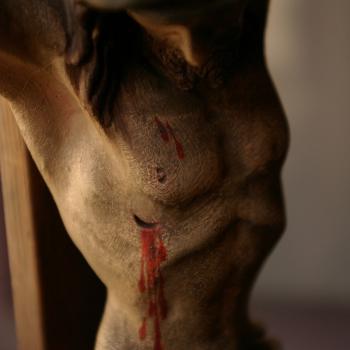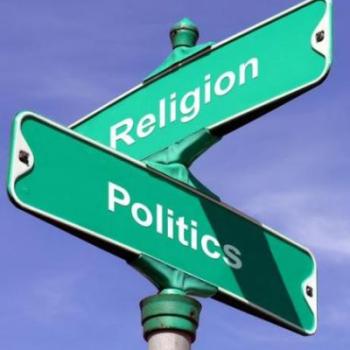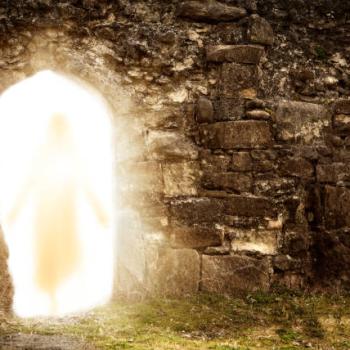

Anti-Judaism is represented (left photo)) in Medieval statues of two women Ecclesia (Christian) and Synagoga (Jewish). Ecclesia on the left is triumphant. Synagoga is defeated and dejected. The photo on the right is a modern vision of Ecclesia and Synagoga of equal stature and in harmony. The modern sculpture is by Joshua Koffman and exists at the University of St. Joseph, Philadelphia.
Three brief stories about Jews and Christians:
- A few years ago a Catholic and a Jewish school in Boston faced each other on the basketball court. From the Catholic side a “cheer” rang out: “Christ killers, Christ killers.”
- Some months ago I participated in a Confirmation class for 11th graders. A video presented the questionable idea that 300 prophecies in the Jewish Scriptures were fulfilled by Jesus.
- A few weeks ago I wrote a post critical of the State of Israel for its treatment of Palestinians.
We have here (1) blatant anti-Judaism along with ignorance of any nuanced interpretation of the New Testament; (2) something more subtle, the unspoken conclusion, again based on a faulty reading of the Bible, that Jews, historically and today, should have known better and, hence, are to blame; (3) the question, Is my post another case of anti-Judaism. How can a Christian speak a word of criticism as an equal and a friend to Jews after our long history of being tyrant and powerful enemy?
Historical and theological rethinking needed
How did we get to the place where not only Nazi henchmen but even Catholic school students and producers of religious education videos still traffic in blatant or subtle anti-Judaism? How do we get to a different place?
I just finished reading A Guest in the House of Israel: Post-Holocaust Church Theology by Clark M. Williamson. This book is an attempt by a Christian to speak credibly to Jews after the Nazi (and Christian) attempt at genocide before and during the Second World War. Williamson responds to two imperatives;
- be honest about the history of Christians with Jews and
- diligently re-frame or delete anything in Christian teaching that one cannot say to Jews after the Holocaust.
The Holocaust has alerted many theologians to the role Christian beliefs tainted with anti-Judaism played. Since then Catholic and Protestant leaders have found new ways of speaking about the people that God first chose and still owns. In a future post I hope to look at Bible interpretations, Christian teachings, and common beliefs that may need to change if Christians are to speak to and about Jews in this post-Holocaust age. This post will expand on that necessary “confession” of Christian sins against Jews.
Anti-Judaism statements and actions of the early Church
In A Guest in the House of Israel Williamson uncovered for me many statements of anti-Judaism prevalent in the early Church. Many of these statements were by writers whom the Church has revered with the title Fathers of the Church. It was difficult reading for me. Less surprising but still disturbing were the many actions officially mandated or tacitly approved by the Church
Here is Augustine, Bishop of Hippo and one of the Church’s and history’s great thinkers:
“…[T]he continued preservation of the Jews will be proof to believing Christians of the subjection merited by those who … put the Lord to death.” (“Reply to Faustus”; Williamson, p. 6)
Augustine lists homelessness and poverty as part of the “subjection” Jews experienced. At various times it might also have included:
- prohibition against Christians eating with Jews, going to Jewish doctors, living in Jewish homes, and having Jewish friends;
- requirements that Jews distinguish themselves “through the character of their dress”;
- prohibitions against Jewish appearing in public during Holy Week, talking with nuns, being judges or tax collectors, holding public office, working on Sunday, owning slaves, being plaintiffs or witnesses against Christians in court.
Ecclesia and Synagoga; Christianity replaces Judaism?
Churches built in the Middle ages still bear statues or images of two women—Ecclesia and Synagoga. Ecclesia is Christian; Synagoga is Jewish. They represent the Christian’s “daily experience of Jewish degradation.” In the cathedral at Strasbourg,
Ecclesia stands upright, a crown placed triumphantly on her head; she holds in her right hand a standard topped by the cross and in her left a chalice…. Synagoga sways backward, away from Ecclesia’s strong gaze. In her right hand, Synagoga holds a spear for wounding, which is broken…. [S]he totters and falls away from Ecclesia. Her other hand, fallen to her side, holds the “Old Testament.” Synagoga’s eyes are blindfolded, unable to read the book…. Ecclesia is strong, indomitable; Synagoga weak and vanquished. Full of hate and obduracy, guilty of deicide, Synagoga awaits her deserved fate at the hands of the upright and victorious church. (Williamson, p. 234)
Mary C. Boys comments:
Many [Medieval Christians] would have viewed the figures of Synagoga and Ecclesia, and thereby absorbed a dangerous lesson: Judaism no longer has reason to exist. (Has God Only One Blessing, p. 35)
In Christianity’s early centuries Tertullian creatively interprets Bible passages. For example, in Mark (3:31-35) Jesus lets his mother and brothers wait outside the house while those who do God’s will are inside. Tertullian interprets Jesus’ mother and brothers respectively as synagogue and Jews. Those inside are Jesus’ true disciples, Christians. Tertullian views the relationship of Christians to Jews as replacement. (pp. 237-38)
For Ambrose of Milan Judas, the betrayer, represents the entire Jewish people. Jews are children “of iniquity, of pestilence, and of the devil, as Scripture testifies.” (Theological and Dogmatic Works, p. 21; Williamson, p. 239)
Irenaus comments on the destruction of Jerusalem by the Romans. Jerusalem, he says was rightly forsaken because the Jews “are no longer useful for bringing forth fruit.” (“Against All Heresies”; Williamson, p. 115)
Is anti-Judaism scriptural or correct theology?
All these Christians read their Scriptures with an anti-Judaism bias. Are the Scriptures themselves that biased? Are Christians right to imagine that they have replaced the Jews as the People of God? These are two difficult questions that must await a future post.
For the first, it’s necessary to read the Gospels, especially the passages most critical of Jews, in the context of the situation of the writers. One must also always remember that Jesus and the first Christians were Jews. They had disagreements with other Jews—a common fact of Jewish life—but more areas where they agreed.
For the second, recent statements by the churches, both Protestant and Catholic, give evidence for a significant change in thinking. Jews are still God’s chosen people. In the image of St. Paul, Christians are a branch grafted onto a very Jewish and, the Church is learning, still living tree.
Images credit: Institute for Jewish-Catholic Relations












